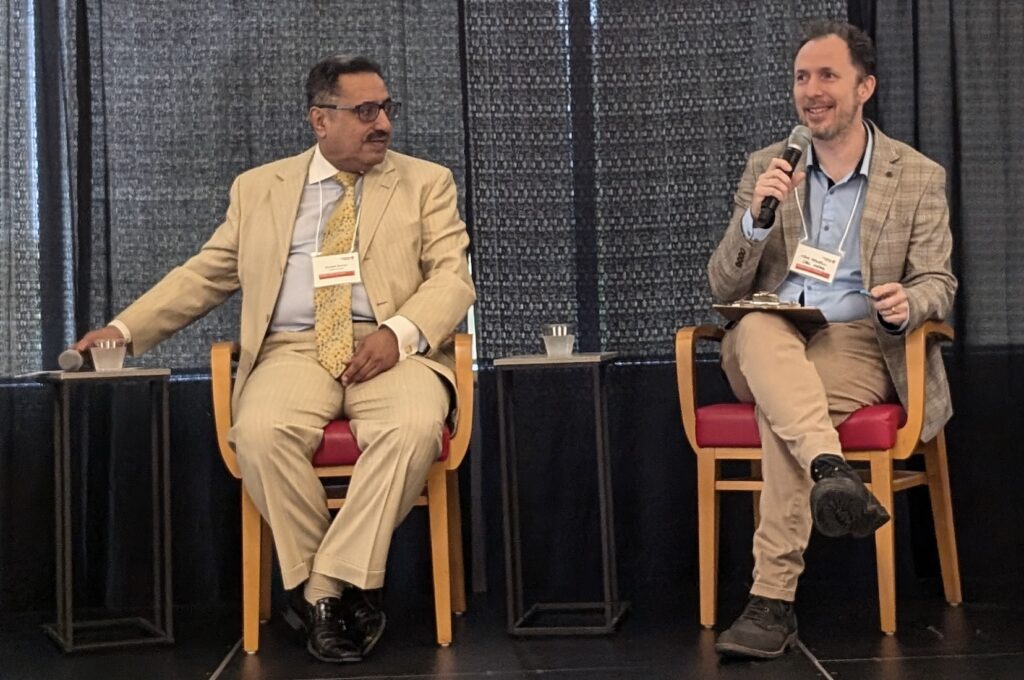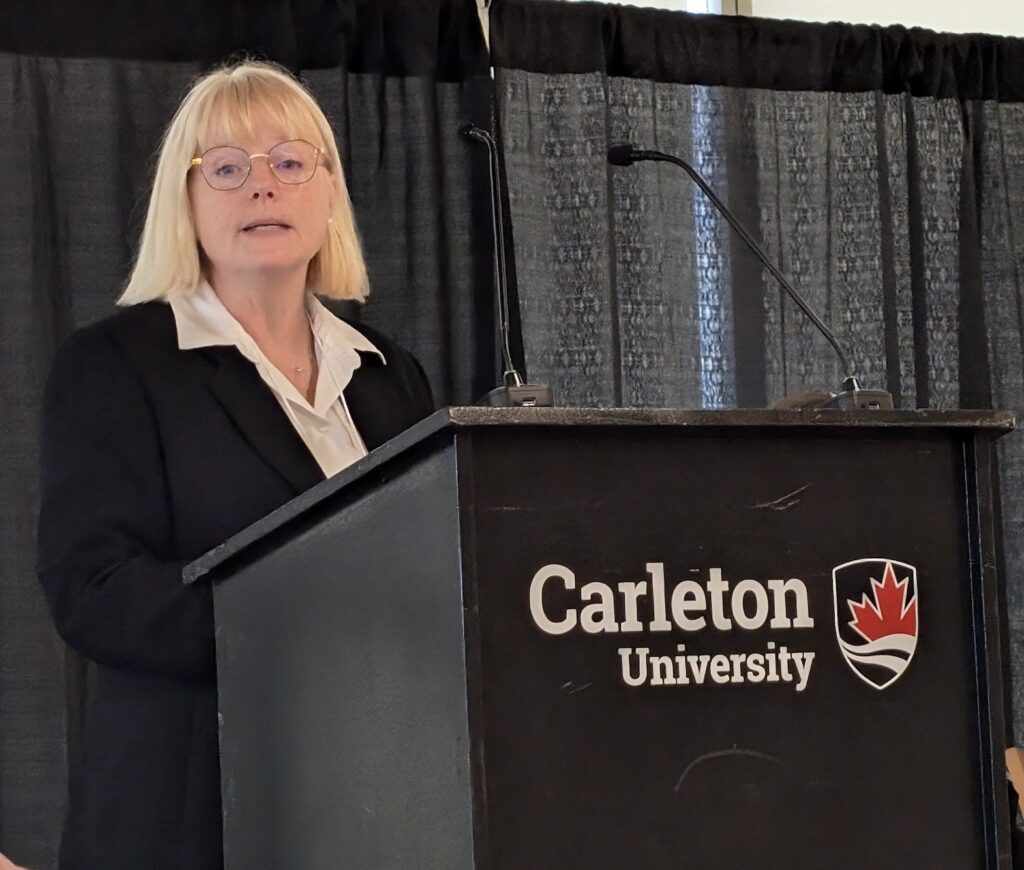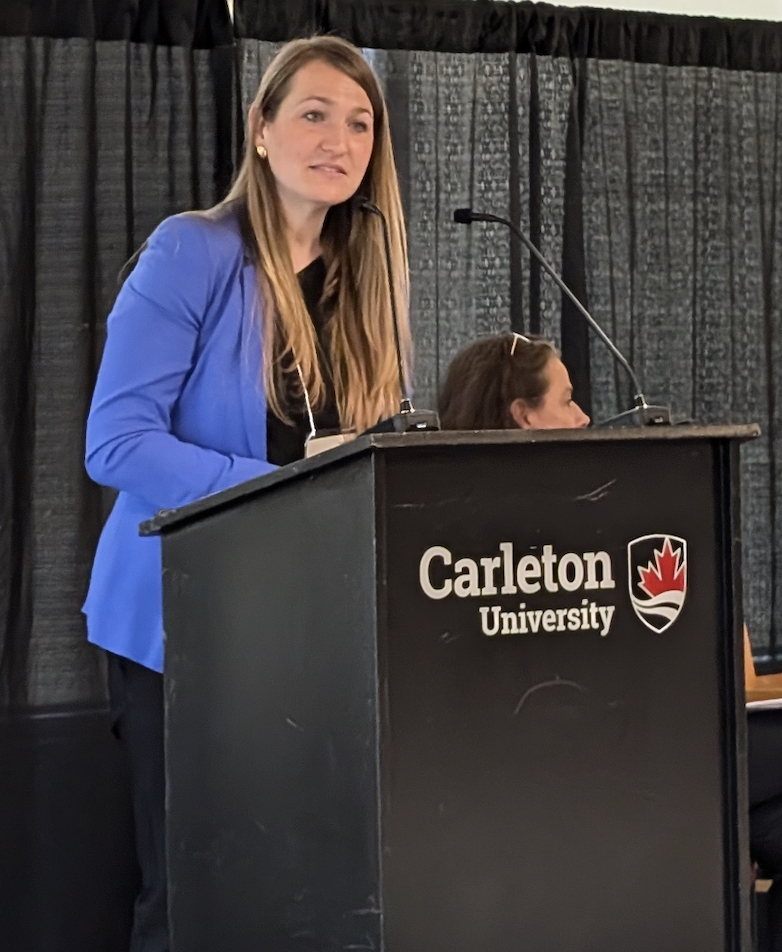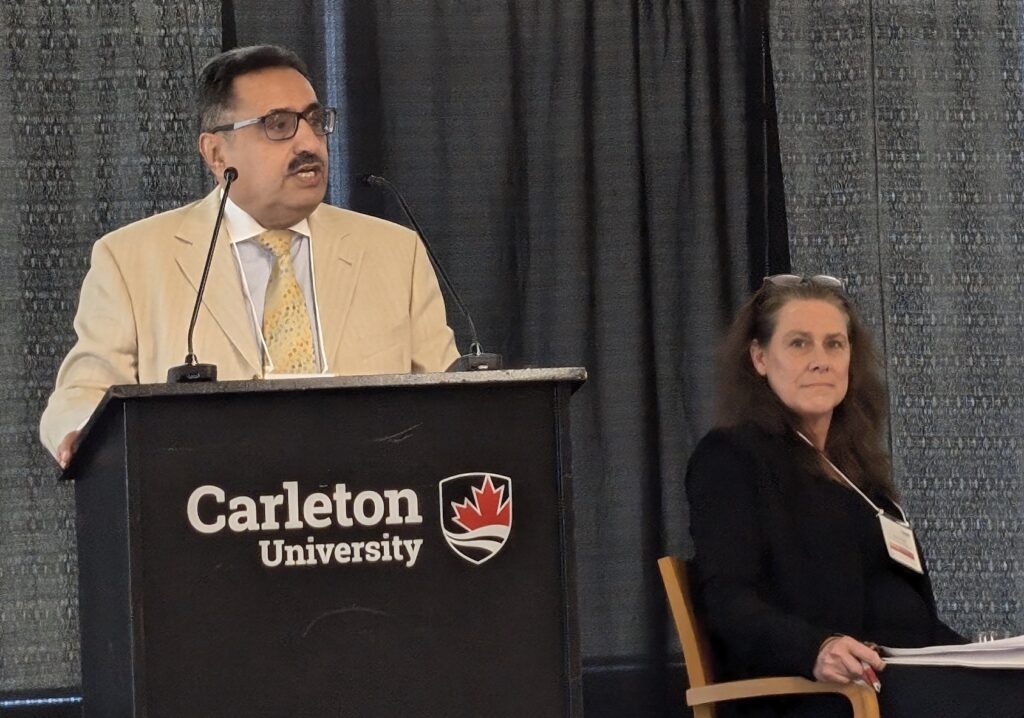
About 200 scholars, policy makers and other stakeholders gathered Thursday, May 22 at Carleton University — and remotely via livestream — for the opening sessions of a two-day conference highlighting the plight of scholars at risk in an era of intensifying global upheaval, persecution and displacement.
Carleton University physics instructor Dr. Mustafa Bahran, a scientist-scholar forced to flee Yemen and now a leading advocate for supporting displaced intellectuals, activists and artists, framed the Safe Havens and Knowledge Networks in Canada conference as coming at a critical moment in world affairs.
“We are living in a time of deep uncertainty, where knowledge is contested, truth is ignored, facts are distorted, borders are hardened, and the very act of asking questions can carry risk,” said Bahran, who came to Canada after serving his home country as a prominent professor, senior public servant and Minister of Electricity and Energy in 2007-08.
Caroline Ford, director of the Democratic and Inclusive Governance Division at the Ottawa-based International Development Research Centre — the event’s principal sponsor — welcomed conference attendees and the 30-plus panelists with a challenge for institutions in Canada and around the world to sustain support for scholars at risk as they navigate their difficult journeys in exile.
“Thank you very much to all of the scholars and activists that are here today in terms of really showing to us what it means to thrive in a place that’s not your own, and to keep that flame of hope alive as you grow,” said Ford.
The conference is co-chaired by Norah Vollmer, Carleton University’s manager of faculty affairs, and Megan Graham, adjunct research professor in Carleton’s department of sociology and anthropology. Vollmer is also co-chair of Scholars at Risk Carleton, and Graham is a co-developer and facilitator of Carleton’s Academic Advancement and Career Alignment Certificate for new scholars in Canada.
The opening keynote session, which was recorded for broadcasting and podcasting by CBC Radio’s Ideas program, featured Bahran, Dr. Zahra Nazari — a scholar from Afghanistan who is now a visiting professor with Carleton’s Department of Electronics — and Dr. James Milner, a Carleton political science professor who has long championed the cause of at-risk scholars among fellow human rights defenders.
‘We are living in a time of deep uncertainty, where knowledge is contested, truth is ignored, facts are distorted, borders are hardened, and the very act of asking questions can carry risk.’
Dr. Mustafa Bahran, physics instructor at Carleton University, scholar at risk from Yemen
Tom Howell, an Ideas producer who served as session moderator on behalf of program host and Carleton journalism alumna Nahlah Ayed, steered the conversation across a wide range of issues, including the personal experiences of scholars at risks and the response by governments and institutions in Canada and elsewhere to support displaced researchers, activists and other intellectuals.
One message that emerged was that Canada should view the displacement of scholars as an opportunity to not only respond to injustice with compassion, but to enrich Canadian society with the knowledge and talent of those who find a safe haven here. In short, scholars at risk should not be perceived as a financial burden for this country.
“It’s not a charity, it’s a smart investment — an investment in global peace, global justice and also innovation and diversity. Because when you bring a scholar here, they bring knowledge,” said Nazari, who also spoke about her experiences as an Afghan woman who fled the country in August 2021 when the Taliban regained power.
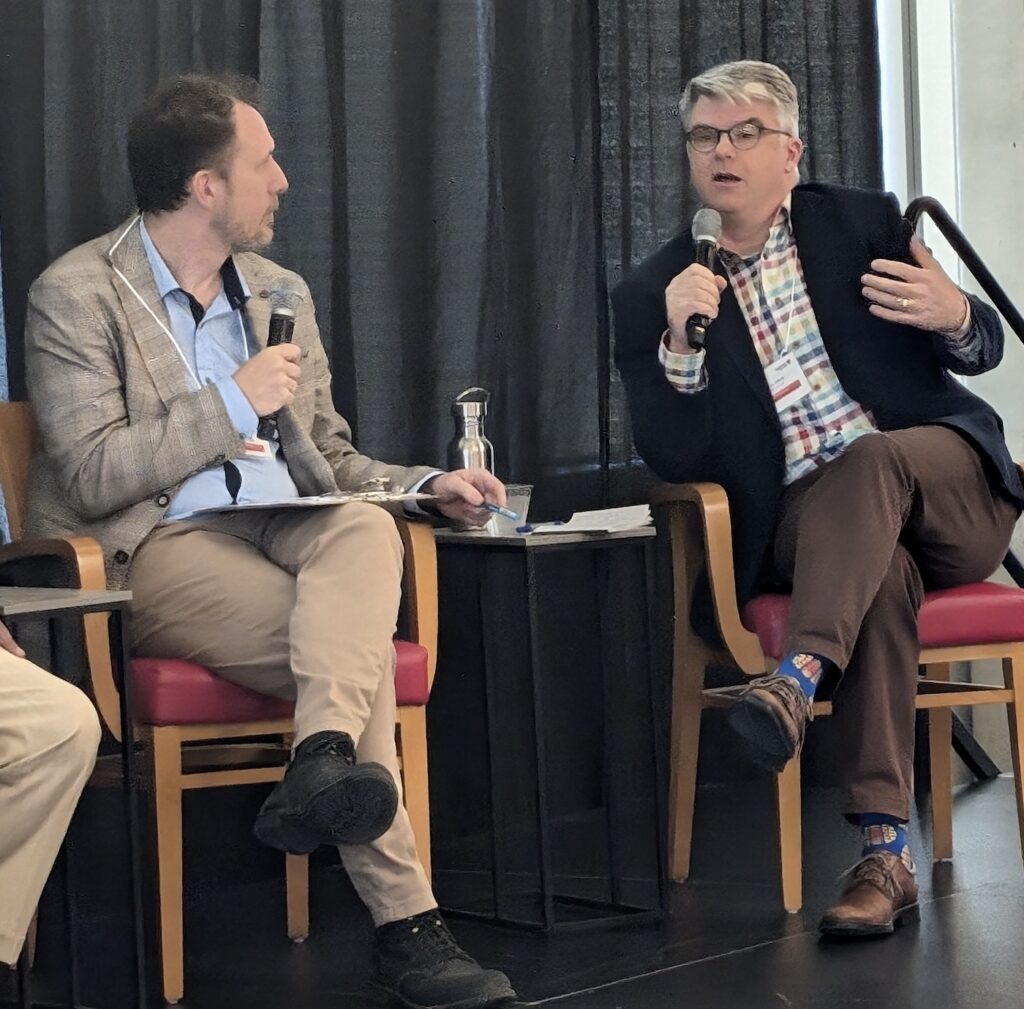
Nazari is also the director of Women in Tech Afghanistan and began a project in 2022 that uses blockchain technology and AI to help migrants maintain their educational and professional credentials when relocating to other countries.
Milner, who is also the director of The Local Engagement Refugee Research Network, brought a big-picture political perspective to the discussion.
‘It’s not a charity, it’s a smart investment — an investment in global peace, global justice and also innovation and diversity. Because when you bring a scholar here, they bring knowledge.’
— Dr. Zahra Nazari, scholar at risk from Afghanistan, visiting professor of electronics, Carleton University
“In my son’s Grade 2 classroom, there is a poster, and it says: If you change the way you look at things, the things you look at change . . . Canada needs to be part of a global paradigm shift in how we think about responses to displacement, not as an act of charity and altruism, but as good common sense in working side by side with those who are the agents of change in the world today,” he said.
Dr. Bahran, who completed his PhD in the U.S. at the University of Oklahoma, spoke compellingly about the day-to-day challenges of being a displaced international scholar in the Canadian job market.
“My scholar-at-risk journey started when I was at risk in Yemen. I was surviving one day at a time,” he said. “Then I moved to Saudi Arabia, north, and I was surviving one month at a time. Then I moved to the United States from Saudi Arabia. They did welcome me there, and I was surviving in the United States one year at a time. Then I moved even more north to Canada, thanks to my wife, who’s here, and now I’m surviving. I’m a Canadian. But job-wise, I’m surviving one year at a time.”
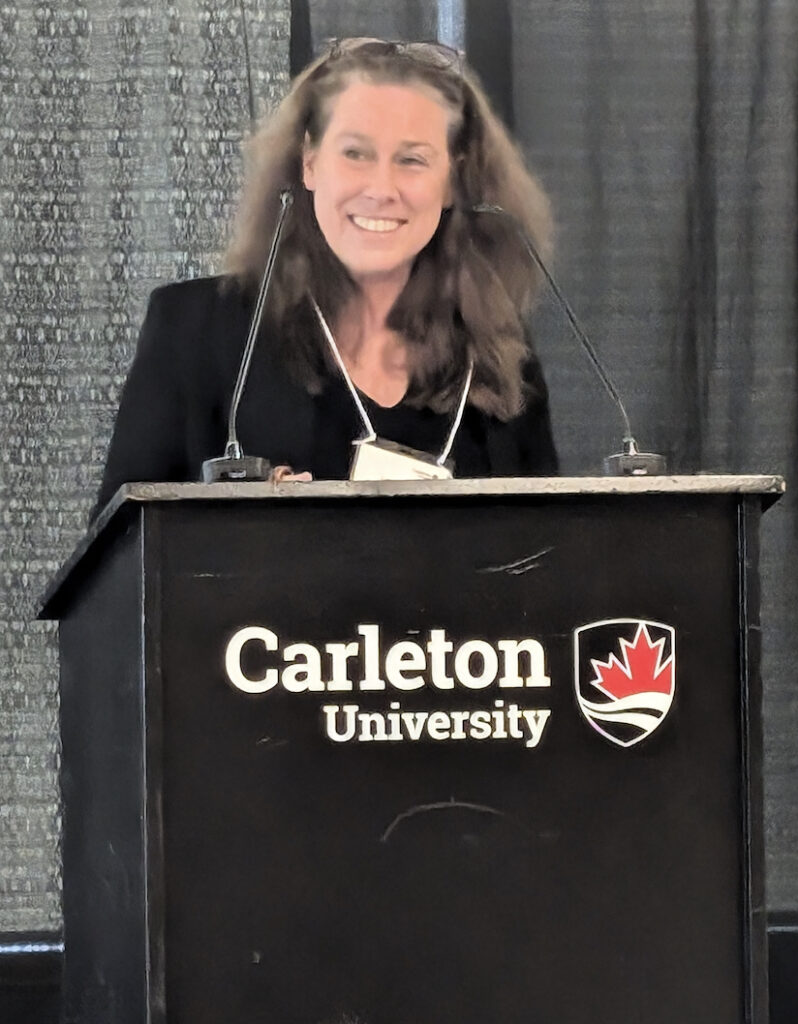
He added: “Carleton, for me, is my home, even if I am a contract instructor.”
The keynote session concluded with talk of solutions on how Canadian universities could better support scholars at risk. Milner offered a powerful analogy.
“Mustafa is speaking on the panel as a physicist. One of the most famous refugees in the last century was Albert Einstein, also a physicist, and the contributions that Albert Einstein was able to make to science were by virtue of having an academic community that could support and host him,” he said.
Similarly, Nazari concluded the keynote with a call to action for Canadian universities.
“If (Canadian Universities) can create some pathways to transition from temporary positions to permanent positions, or maybe if they can help us to have permanent residency, it would help us a lot,” she said. “Because we have to think about many things. We cannot focus only on our research. You have to think about everything.”
